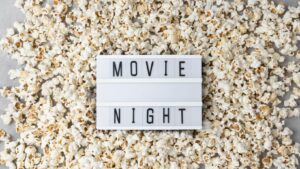Greatest Film Scores of All Time
A Greatest Film Scores of All Time creates a connection between the audience and the narrative. It’s not just background music; it enhances storytelling. Effective scores allow viewers to feel the emotions intended by the scene. Strong film scores evoke emotions in listeners. Scores like John Williams’ Schindler’s List theme instill deep emotions, making scenes memorable. Emotional resonance makes scenes impactful.Memorable themes define great scores. Howard Shore’s score for The Lord of the Rings offers recognizable motifs that linger in audiences’ minds. These themes become iconic, associated with the film itself.
Scores effectively supporting the narrative enhance the story. Hans Zimmer’s score for Inception adds tension and complexity. By aligning with the film’s themes, scores add depth. Musical complexity and skill contribute to a score’s greatness. Ennio Morricone’s score for The Good, The Bad and The Ugly showcases intricate compositions. Complex scores offer layers upon layers of musical delight.
Timeless quality is a hallmark of great scores. Scores like Star Wars remain relevant across generations. Timeless music transcends its era, becoming a lasting part of popular culture. An adaptable score can fit various contexts within the film. Danny Elfman’s work in Batman transitions seamlessly from action to quiet moments. This adaptability helps maintain cohesion throughout the film.
Top Composers Of All Time
Greatest Film Scores of All Time gain their iconic status through the work of extraordinary composers. These individuals have crafted some of the greatest musical accompaniments in cinema, leaving an indelible mark on the industry.
John Williams has composed for over 100 films, creating some of the most recognizable themes in cinema. From Star Wars to Jurassic Park, his scores have become cultural touchstones. His work for the Indiana Jones series demonstrates his ability to blend adventure with musical brilliance. Williams received five Academy Awards and over 50 nominations, showcasing his influence on the industry.
Hans Zimmer is celebrated for his innovative and modern approach to film scoring. Known for using electronic elements combined with traditional orchestration, his work in Inception has set new standards. Scores for The Dark Knight Trilogy exhibit his unique style and ability to evoke deep emotions. Zimmer’s collaborations with directors like Christopher Nolan highlight his role in shaping contemporary film music.
Ennio Morricone’s contributions to film music are monumental, with over 500 scores to his name. Best known for his work in Spaghetti Westerns like The Good, The Bad and The Ugly, his music remains iconic. His score for Cinema Paradiso showcases his versatility and emotional depth. Morricone received an Academy Honorary Award and an Oscar for The Hateful Eight, solidifying his legacy as one of the greatest.
Iconic Film Scores By Decade
The evolution of Greatest Film Scores of All Time across decades demonstrates the transformative power of music in film. Each era has produced unforgettable compositions, shaping the cinematic experience.
The 1970s brought groundbreaking scores that elevated the film industry. John Williams’ work for Star Wars (1977) redefined the use of orchestral music in film, becoming synonymous with the epic space opera genre. Another standout, Nino Rota’s score for The Godfather (1972), used haunting melodies to enhance the film’s powerful narrative on family and power. Jerry Goldsmith’s composition for Alien (1979) showcased eerie, atmospheric tones that perfectly matched the film’s suspenseful mood.
The 1980s carried forward the tradition of unforgettable film scores. John Williams continued to dominate with his triumphant theme for Indiana Jones: Raiders of the Lost Ark (1981). Vangelis’ electronic score for Blade Runner (1982) created a futuristic soundscape, adding depth to Ridley Scott’s dystopian vision. Alan Silvestri’s energetic and iconic score for Back to the Future (1985) became integral to the film’s identity, blending adventure with nostalgia.
The 1990s saw a diversification in musical styles. Hans Zimmer’s powerful score for The Lion King (1994) combined African rhythms with orchestral arrangements, earning him an Academy Award. James Horner’s emotive music for Titanic (1997) became one of the best-selling orchestral soundtracks of all time. Howard Shore’s work for The Lord of the Rings: The Fellowship of the Ring (1999) laid the foundation for an epic trilogy, using thematic motifs to enrich J.R.R. Tolkien’s world.

